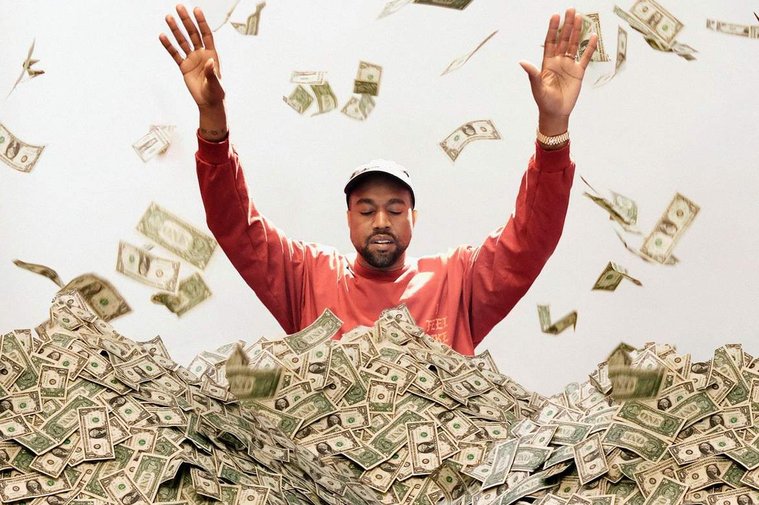Billionaire brunches and black liberation
As Kanye West reportedly joins Jay-Z as rapper turned billionaire it’s important to remind ourselves that more black billionaires doesn’t equal liberation for black people.
On March the 13th Jay Electronica dropped his long awaited (and that’s an understatement) debut album. It turned out to be a joint album with Jay-Z. A Written Testimony is a fantastic album. Over the 39 minutes the two Jays showcase phenomenal technical rapping ability, delivering songs packed with meaning and introspection. It manages to be political without descending in to the insufferable sort of woke-rap that relies on bombarding the listener with statistics over 808’s. The album purports to be so pro-black you wouldn’t be surprised if you found out it was executively produced by Dr. Umar Johnson. One of the key themes throughout Jay-Z’s verses in A Written Testimony and much of his recent discography, is the idea that the mass wealth he has accumulated posits him as an example of how African Americans can rise out of the systemic socio-economic disadvantages afforded to them at birth. To some extent this is true. The Roc nation brunches he puts on see him clinking glasses with other high profile black entertainers ranging from Kevin Hart, Rihanna, P Diddy and Joey Bada$$. With star guests recording Instagram viral toasts celebrating black excellence. Representation matters and for disenfranchised black people in the states and beyond, seeing black faces make up more of the mainstream media definitely instills hope. The difficulty is that when the astronomical wealth of a few is conflated with hope for everyone, it seduces people in to thinking accumulating money is the anti-dote to structural racism. Without really addressing the fact that the capitalist game we’d like to believe we can all win, relies on racism to function. If we look at Jay-Z’s story specifically, he valorises his past as drug dealer and the way that it gave him the financial foundation to pursue rapping. I’m not one to condemn ones who find themselves restricted to means outside of the law to survive. But drugs destroy lives in impoverished black communities and for every Jay-Z success story there must be countless people who never got to beat the statistics and meet their true potential due to drug addiction. We also can’t forget that America’s war on drugs fuels mass incarceration and the prison industrial complex. A political policy of disproportionately punishing black people for minor drug offences to fill out privately owned prisons. It actively relies on drug dealing to function. So dealing drugs within the black community then peddling your story as a crusade towards black liberation doesn’t make any sense. A similar argument can be made for the way that pimping has been framed in rap music. As well as the misogynoir that is rampant within sections of the black male community. Even though rap represents a genuine source of equity for black people many of it’s tropes serve to victimise members of the community. Success for a few black (usually straight male) individuals using business models that are at the expense at the rest of the community isn’t the same as success for black people in general, quite the opposite.
It makes complete sense why some people would equate wealth to liberation since wealth is often tantamount to power, the one thing black Americans systemically lack. But once you unpack how mass capitalism works as a system, it becomes clear that it’s at odds with notions of equality that we are striving for. Dr. King himself proclaimed that it would be impossible to get rid of racism whilst economic exploitation still existed as they were intrinsically tied to each other . If you think about it, cheap labour is one of the surest ways to maximise profits. Arguably the most extreme example of this is slavery. Clearly there’s a difference between capitalism and slavery. But when you understand the exploitive nature of mass wealth accumulation you can see why it relies on racism to function. The dehumanisation of certain groups of people is necessary to justify them working in dehumanising conditions. You just have to look at the fast fashion industry that people are happy to buy in to. Despite knowing that clothes are only available so cheaply because of child labour and sweatshops, the fact it happens in the global south means there’s no outcry. Buyers may tell themselves that any work is better than none for people that poor, but I doubt anyone would buy from Primark if they had sweatshops in Bradford or another impoverished part of the U.K. The humanity of people here trumps their poverty. Contrary to how it may seem, I personally believe Jay-Z and rappers like him actively do care about the wider black community. Rappers in general often don’t come from educational backgrounds that allow them to interrogate economic power structures. Much like many of the fans who herald them, just surviving takes up too much time to look beyond the immediacy of the material. At the same time it is important to distinguish the difference between one-off inspiring rags to riches stories, and a model applicable for the masses. The Diddy’s, Dre’, Jay’s and Kanye’s are episodic not systemic. We should celebrate and enjoy them whilst not forgetting that.
Article written by Martyn Ewoma. See more from Martyn here
You may also like...
Writer Tariyé Peterside delves in to the ever political world of sports to explore the IAAF's decision to deny Caster Semenya the right to compete in the sport she has long dominated



